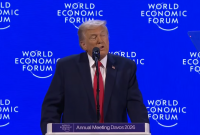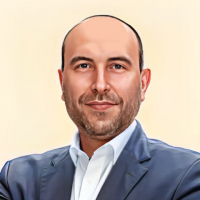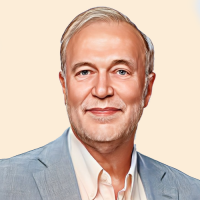Is private equity, like Amundi’s Chief Investment Officer Vincent Mortier recently said, a Ponzi scheme? Or is there another reason to fear this asset class?
Luxembourg’s private equity business has experienced a boom in recent years as the Grand Duchy’s improved regime for alternative investments helped it benefit from strong growth in global private markets. For professional investors - family offices and pension funds alike - private markets have become an important asset class.
Several major investment funds, including for example New York-based Apollo Investment Management, and family offices such as Anthos, the vehicle of the Dutch family behind fashion retailer C&A, in recent years have set up Luxembourg fund structures such as SCSp’s and Raifs that helps them to allocate more capital to private markets.
800 billion dollars
Globally, private equity and venture capital attracted some 800 billion dollars in investments last year, beating the period record from 2007 by some 20 percent. Luxembourg’s Private Equity Association believes 2021 “may have represented a peak” against the backdrop of global inflation and sharp declines in public financial markets.
“As the market-pendulum swings yet again, we sense that some negotiating power is returning back in favour of buyers,” LPEA president Claus Mansfeldt and CEO Stephane Pesch wrote in the LPEA annual report published last week.
Family offices in particular love private equity. Some 200 family offices recently surveyed by Swiss bank UBS all plan to put more money into private companies during the next five years. Last year, they allocated a fifth of their holdings to private equity, compared to 15 percent in 2019.
A new era
Family offices have embraced “a new era” of strategic asset allocation as “high inflation and rising interest rates compel them to review investment options as a strategic shift towards additional resources of return and alternative diversifiers,” said Joe Stadler, executive vice chairman at UBS Wealth Management.
Other investment professionals in recent weeks have raised concerns. Vincent Mortier, Chief Investment Officer at Amundi, Europe’s largest fund manager with two trillion euro in assets, has said the private equity industry has grown into a “pyramid scheme” that will create casualties in around three to five years.
“Some parts of private equity look like a pyramid scheme in a way,” Mortier said at a June 1 London conference. “You know you can sell [assets] to another private equity firm for 20 or 30 times earnings. That’s why you can talk about a Ponzi. It’s a circular thing.”
Longer holding periods
So far this year, private equity valuations have remained robust, in contrast with the brutal sell-off in stock and bond markets. Private equity fans like to underline that the conventional, longer holding periods for their investments reduce the influence of speculative money, while efforts to make PE more accessible for a wider range of investors also are said to underpin the asset class.
The optimism over the robustness of private equity may be excessive, according to economist Mohammed El-Erian, chief economic advisor at Allianz. Historically, private equity valuations have tended to lag public markets by six to nine months. “What lies ahead is a world in which the cost of money will be higher and financial flows more selective as they become less ample,” he recently said in his column.
Competition is a factor that deserves consideration when assessing the prospect for private equity. As Luxembourg’s market, with its clear and regulated ecosystem, demonstrates, underlying market structures have changed, making private equity less complicated to tap into. Luxembourg’s Private Equity Association increasingly sees this market as one that is attractive for high net-worth individuals and family offices. Fund houses such as Amundi undoubtedly see that some of their clients consider this emerged asset class.
Challenging market conditions
The UBS survey underlines the “new era” for investments by family offices, with private equity being popular among family offices globally because of a broad opportunity and potential to produce higher returns. “Against challenging market conditions, family offices see the bigger picture and are applying prudence and innovation to their strategic asset allocation,” said Stadler.
Valuations in private equity are not as regular and as transparent as in public markets. It is only natural that pricing here lags behind. It’s up to investment fund managers to determine the valuations. These undoubtedly will have to be adjusted to the reality of today’s financial markets. Given the record high valuations from 2021, that will hurt.
Publicly held private equity investment companies can attest to these challenges. In Belgium, Sofina trades now at 200 euro, down from a peak of 434,60 euro in January, and Brederode at 84,20 euro, compared to a record 135,80 in November. In Paris, Wendel SE, the investment vehicle of the Wendel family which has a small part listed on Euronext, traded at 89,30 euro, below the NAV of 165.80 euro that the firm published at the end of April. Luxempart, a family-owned firm traded on the Luxembourg Stock Exchange, was quoted at 73 euro on Monday, not far below its all-time high of 79.50 euro.
The Belgian market historically lists a number of highly successful holding companies with a long track record of investing in private equity, often family owned. During trading on Monday, Sofina stock even briefly dipped below the 200 euro threshold. Sofina has been one of the best performing Belgian stocks and was long dubbed ‘The Sleeping Beauty’ because of the lack of transparency from senior management.
In 2015 Harold Boël changed the strategy and became much more transparent, allowing Sofina stock to triple in just a couple of years, buoyed by retail and institutional interest. Successful investments and subsequent exits in high-profile private equity, often in emerging markets, did the rest. But recently the stock has plummeted because of declining private equity pricing, hit by rising interest rates and market uncertainty, and a shorter scrutiny of the company’s valuation of PE interests. The average sell-side advice on the stock remains ‘buy’ with a 323 EUR target price, although KBC Securities has recently cut its target price from 380 to 283 euro, reflecting current uncertainty. Brederode, led by chairman Pierre Van der Mersch, is also seen as a Belgian success story.
In Flux is a regular column on Investment Officer shedding light on the Luxembourg financial ecosystem. Financial journalist Raymond Frenken is Editorial Manager of InvestmentOfficer.lu. He has followed financial markets and EU regulation for more than two decades. Earlier in his career he was Amsterdam bureau chief for Bloomberg News, Benelux correspondent for FT/MarketWatch, EU correspondent for CNBC in Brussels, and until 2021 director of communications at the European Banking Federation in Brussels.


















